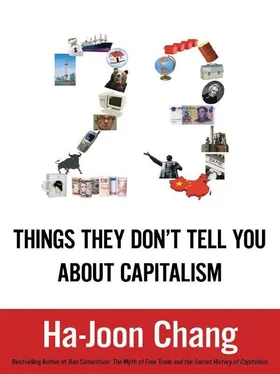‘Prince of darkness’ changes his mind
Lord Peter Mandelson, the de facto deputy prime minister of the UK government at the time of writing (early 2010), has a bit of a reputation for his Machiavellian politics. A grandson of the highly respected Labour politician Herbert Morrison, and a TV producer by profession, Mandelson was the chief spin doctor behind the rise of the so-called New Labour under Tony Blair. His famous ability to sense and exploit shifts in political moods and accordingly organize an effective media campaign, combined with his ruthlessness, earned him the nickname ‘prince of darkness’.
After a high-profile but turbulent cabinet career, marred by two resignations due to suspected corruption scandals, Mandelson quit British politics and moved to Brussels to become European Commissioner for Trade in 2004. Building on the image of a pro-business politician, gained during his brief spell as the UK’s Secretary of State for Trade and Industry back in 1998, Mandelson established a firm reputation as one of the world’s leading advocates of free trade and investment.
So it sent out a shockwave, when Mandelson, who had made a surprise comeback to British politics and become Business Secretary in early 2009, said in an interview with the Wall Street Journal in September 2009 that, thanks to Britain’s permissive attitude towards foreign ownership, ‘UK manufacturing could be a loser’, even though he added the proviso that this was ‘over a lengthy period of time, certainly not overnight’.
Was it a typical Mandelson antic, with his instinct telling him that this was the time to play the nationalist card? Or did he finally cotton on to something that he and other British policy-makers should have realized a long time ago – that excessive foreign ownership of a national economy can be harmful?
Now, it may be argued, the fact that firms have a home-country bias does not necessarily mean that countries should put restrictions on foreign investment. True, given the home bias, investment by a foreign company may not be in the most desirable activities, but an investment is an investment and it will still increase output and create jobs. If you put restrictions on what foreign investors can do – for example, by telling them that they cannot invest in certain ‘strategic’ industries, by forbidding them from holding a majority share or demanding that they transfer technologies – foreign investors will simply go somewhere else and you will lose the jobs and the wealth that they would have created. Especially for developing countries, which do not have many national firms that can make similar investments, rejecting foreign investment because it is foreign many people believe is frankly irrational. Even if they get only lower-grade activities such as assembly operation, they are still better off with the investment than without it.
This reasoning is correct in its own terms, but there are more issues that need to be considered before we conclude that there should be no restriction on foreign investment (here, we put aside portfolio investment, which is investment in company shares for financial gains without involvement in direct management, and focus on foreign direct investment, which is usually defined as acquisition of more than 10 per cent of a company’s shares with an intent to get involved in management).
First of all, we need to remember that a lot of foreign investment is what is known as ‘brownfield investment,’ that is, acquisition of existing firms by a foreign firm, rather than ‘greenfield investment’, which involves a foreign firm setting up new production facilities. Since the 1990s, brownfield investment has accounted for over half of total world foreign direct investment (FDI), even reaching 80 per cent in 2001, at the height of the international mergers and acquisitions (M&A) boom. This means that the majority of FDI involves taking control of existing firms, rather than the creation of new output and jobs. Of course, the new owners may inject better managerial and technological capabilities and revive an ailing company – as seen in the case of Nissan under Carlos Ghosn – but very often such an acquisition is made with a view to utilizing capabilities that already exist in the acquired company rather than creating new ones. And, more importantly, once your national firm is acquired by a foreign firm, the home bias of the acquiring company will in the long run impose a ceiling on how far it progresses in the internal pecking order of the acquiring company.
Even in the case of greenfield investment, home-country bias is a factor to consider. Yes, greenfield investment creates new productive capabilities, so it is by definition better than the alternative, that is, no investment. However, the question that policy-makers need to consider before accepting it is how it is going to affect the future trajectory of their national economy. Different activities have different potentials for technological innovation and productivity growth, and therefore what you do today influences what you will be doing in the future and what you will get out of it. As a popular saying among American industrial policy experts in the 1980s went, we cannot pretend that it does not matter whether you produce potato chips, wood chips or microchips. And the chance is that a foreign company is more likely to produce potato chips or wood chips than microchips in your country.
Given this, especially for a developing country, whose national firms are still underdeveloped, it may be better to restrict FDI at least in some industries and try to raise national firms so that they become credible alternative investors to foreign companies. This will make the country lose some investment in the short run, but it may enable it to have more higher-end activities within its borders in the long run. Or, even better, the developing country government can allow foreign investment under conditions that will help the country upgrade the capabilities of national firms faster – for example, by requiring joint ventures (which will promote the transfer of managerial techniques), demanding more active technology transfer, or mandating worker training.
Now, saying that foreign capital is likely to be less good for your country than your own national capital is not to say that we should always prefer national capital to foreign capital. This is because its nationality is not the only thing that determines the behaviour of capital. The intention and the capability of the capital in question also matter.
Suppose that you are thinking of selling a struggling nationally owned car company. Ideally, you want the new owner to have the willingness and the ability to upgrade the company in the long run. The prospective buyer is more likely to have the technological capabilities to do so when it is an already established automobile producer, whether national or foreign, rather than when it is finance capital, such as a private equity fund.
In recent years, private equity funds have played an increasingly important role in corporate acquisitions. Even though they have no in-house expertise in particular industries, they may, in theory, acquire a company for the long term and hire industry experts as managers and ask them to upgrade its capabilities. However, in practice, these funds usually have no intention to upgrade the acquired company for the long term. They acquire firms with a view to selling them on in three to five years after restructuring them into profitability. Such restructuring, given the time horizon, usually involves cutting costs (especially sacking workers and refraining from long-term investments), rather than raising capabilities. Such restructuring is likely to hurt the long-term prospects of the company by weakening its ability to generate productivity growth. In the worst cases, private equity funds may acquire companies with the explicit intention to engage in asset-stripping, selling the valuable assets of a company without regard to its long-term future. What the now-notorious Phoenix Venture Holdings did to the British car-maker Rover, which they had bought from BMW, is a classic example of this (the so-called ‘Phoenix Four’ became particularly notorious for paying themselves huge salaries and their friends exorbitant consultancy fees).
Читать дальше






![Ally Carter - [Gallagher Girls 01] I'd Tell You I Love You But Then I'd Have to Kill You](/books/262179/ally-carter-gallagher-girls-01-i-d-tell-you-i-lo-thumb.webp)





